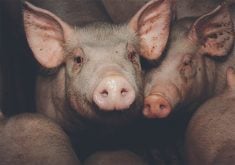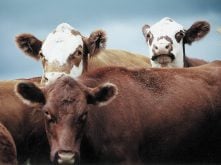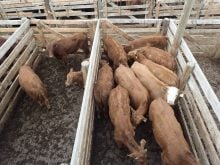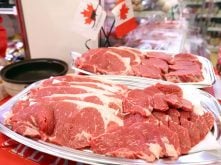ESTERHAZY, Sask. – Nineteen-month-old Treston Stewart is already at ease around the towering Belgians at Rocky Bar Ranch.
His tiny hands grasp a brush to help his grandfather, Nick denBrok, and his aunt, Traci denBrok Sandilands, groom two-year-old Rambo, although his reach is limited to just part of the horse’s leg.
The youngster is the first member of the fourth generation associated with the ranch southeast of Esterhazy.
The names Rocky Bar and denBrok have been synonymous with the draft horse industry for 42 years. Nick denBrok and his father, John, began in 1968. John retired in 1979.
Read Also
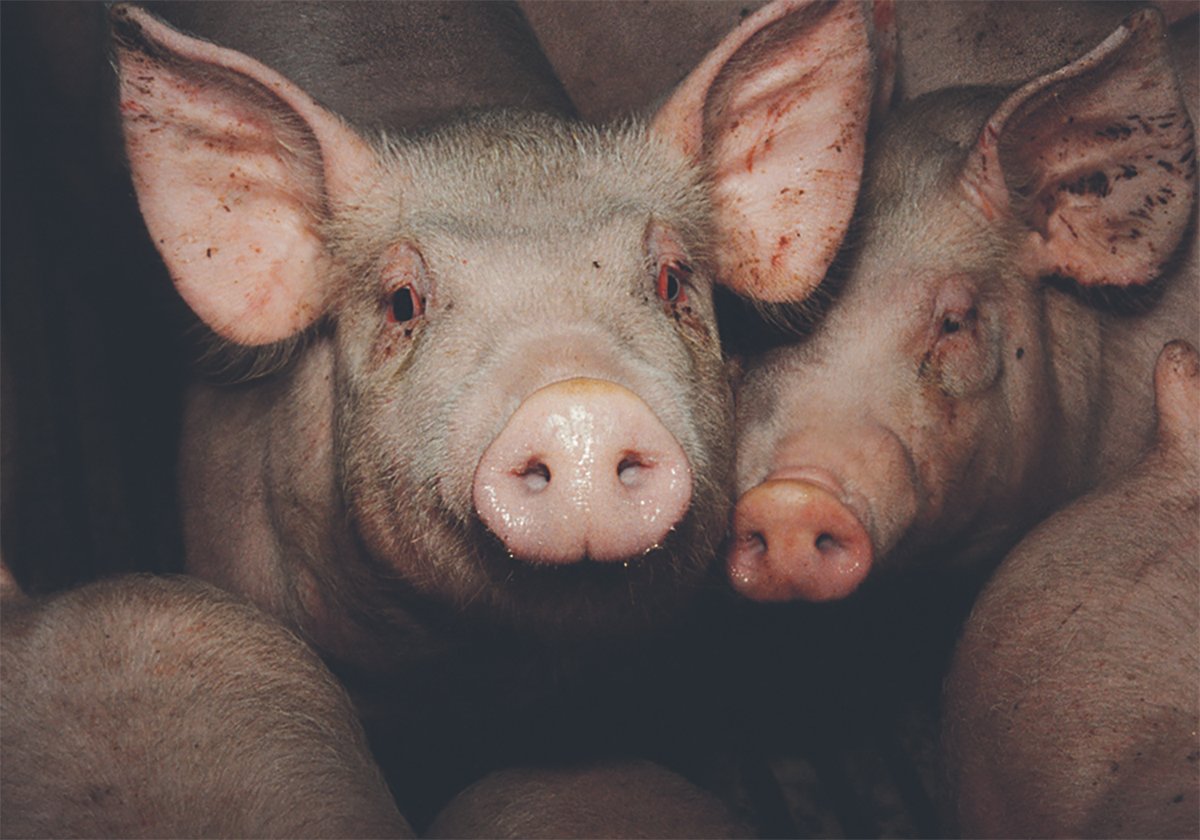
The Western Producer Livestock Report – October 30, 2025
Western Producer Livestock Report for October 30, 2025. See U.S. & Canadian hog prices, Canadian bison & lamb market data and sales insights.
They first showed at Toronto’s Royal Winter Fair in 1968 and since then have travelled throughout Canada and the United States showing Belgians and Percherons.
The family also ran a pregnant mares’ urine farm for 39 years and was among the last to lose its contract as that industry declined.
“We continued with the horses because we were showing all along,” Nick denBrok said.
“It’s been a good business for us, too, and a way of life for us forever.”
Rocky Bar Ranch now includes 120 purebred horses, mostly Belgian, and a 6,000-acre grain farm. DenBrok also raises 400 commercial cows with Traci and her husband, David Sandilands, who live 400 metres south of the main farm.
When Traci and her sisters Jodi, who is Treston’s mother, and Laci were growing up, they spent weeks on the road with the horses. Their mother, Sandra, often stayed home to watch the farm. She also worked at the Royal Bank for a time, as have Traci and Laci.
“We really follow in our parents’ footsteps,” Traci said with a laugh.
DenBrok said it is a lot of work to take horses on the road and all three girls had to help.
It didn’t hurt that they had the typical teenage girl love affair with horses, he added, and they didn’t outgrow it.
They are still involved, which is a good thing because their father has no immediate plans to slow down. He plans to attend all the major shows and is a member of the committee bringing the North American Belgian Championships to Brandon in 2012.
“In the next few years we’ll probably be showing a little more extensively than we have,” he said, to gear up for the show.
The family spends the money, time and hard work on the show circuit mainly to sell breeding stock and show geldings.
“People always want to buy from the horses that are winning,” denBrok said.
The Rocky Bar track record is strong. DenBrok horses earned 10 first place ribbons at the national Belgian show in Iowa several years ago, a record that still stands.
Last year, they beat out the competition at the Royal to win the six-horse hitch championship.
Most recently, denBrok took a chance on several of his young Belgians at Canadian Western Agribition. After a successful show season, including six-horse hitch championships at Virden and Birtle, Man., he decided to take less experienced horses to Regina and leave the veterans at home.
Taking that chance paid off when his youngsters, in combination with three horses from Tom Lane at Creek Side Belgians, won the six-horse event at Agribition.
Combining horses that aren’t familiar with one another is challenging and their success surprised even denBrok.
“We thought we’d put a young group of geldings out just for the experience,” he said.
Rambo was among them, as the left lead, and his natural performing ability shone.
DenBrok drives his horses four or five times a week, a sight that often causes drivers to stop and watch.
“The more driving that you do at home, the more consistency you’ll get at a show,” denBrok said.
The farm’s former PMU barn has been converted to a riding and training arena for indoor practice.
The horse business fits well with grain farming. No shows are booked in May when seeding is underway and the fall shows usually begin after harvest. This year was more challenging because the denBroks were still harvesting Nov. 1. They grow mainly cereals and hay for their cattle and horses.
In addition to the show circuit, denBrok breaks teams for his customers. People are increasingly using horses to do chores on their farms or to drive for pleasure rides.
He said that those who have no experience around the big draft horses start with a team that “has done it all before.”
These horses know what they have to do, while younger horses are more unpredictable.



